Chemical+and+Biomolecular+Engineering
-
 Wuhan University, China, Appoints Distinguished Professor Sang Yup Lee as Honorary Professor
Sang Yup Lee, Distinguished Professor of the Department of Chemical and Biomolecular Engineering at KAIST, has been appointed an honorary professor at Wuhan University in Hubei Province, China. This is the third time that Professor Lee has received an honorary professorship from Chinese academic institutions. The Chinese Academy of Sciences appointed him an honorary professor in 2012, and Shanghai Jia Tong University asked him to serve as an advisory professor in 2013, respectively.
Professor Lee was recognized for his pioneering research in systems metabolic engineering of microorganisms necessary for the development of green chemical industries. He succeeded in producing succinic acid through bacterial fermentation and engineering plastic raw materials in the most effective and economical method for the first time in the world. Professor Lee also developed polylactic acid, a bio-based polymer that allows plastics to be produced through natural and renewable resources, as well as the microbial production of alkanes, an alternative to gasoline that can be produced from fatty acids.
Professor Lee has been actively working as a member of a group of global leaders supported by the World Economic Forum (WEF), serving the Chairman of the Future of Chemicals, Advanced Materials & Biotechnology, Global Agenda Councils, WEF.
Wuhan University is a comprehensive and key national university selected by the Chinese government as a major recipient of state funding for research. It is also known as one of the most beautiful campuses in China.
2014.10.20 View 8575
Wuhan University, China, Appoints Distinguished Professor Sang Yup Lee as Honorary Professor
Sang Yup Lee, Distinguished Professor of the Department of Chemical and Biomolecular Engineering at KAIST, has been appointed an honorary professor at Wuhan University in Hubei Province, China. This is the third time that Professor Lee has received an honorary professorship from Chinese academic institutions. The Chinese Academy of Sciences appointed him an honorary professor in 2012, and Shanghai Jia Tong University asked him to serve as an advisory professor in 2013, respectively.
Professor Lee was recognized for his pioneering research in systems metabolic engineering of microorganisms necessary for the development of green chemical industries. He succeeded in producing succinic acid through bacterial fermentation and engineering plastic raw materials in the most effective and economical method for the first time in the world. Professor Lee also developed polylactic acid, a bio-based polymer that allows plastics to be produced through natural and renewable resources, as well as the microbial production of alkanes, an alternative to gasoline that can be produced from fatty acids.
Professor Lee has been actively working as a member of a group of global leaders supported by the World Economic Forum (WEF), serving the Chairman of the Future of Chemicals, Advanced Materials & Biotechnology, Global Agenda Councils, WEF.
Wuhan University is a comprehensive and key national university selected by the Chinese government as a major recipient of state funding for research. It is also known as one of the most beautiful campuses in China.
2014.10.20 View 8575 -
 Distinguished Professor Sang Yup Lee Gives Special Lecture at Tianjin University, China
Distinguished Professor Sang Yup Lee from the Department of Chemical and Biomolecular Engineering at KAIST gave a special lecture at Tianjin University, China, on September 12, 2014.
The university has invited prestigious scholars and scientists including Nobel Prize laureates from all around the world to their program called the "BeiYang Lecture Series."
Professor Lee said:
"The lecture series has invited many eminent global leaders such as Dr. Steven Chu, who received the Nobel Prize in Physics in 1997 and also served the 12th United States Secretary of Energy. It is a great honor to participate in the program as a speaker. The university told me that in recognition of my research in the development of sustainable biochemical industry through systems metabolic engineering, I was invited to speak.”
Professor Lee presented his speech entitled “Production of Chemical Materials through Microorganism Metabolic Systems Engineering” and took questions from the audience.
Professor Lee developed the world’s most efficient microorganism and bioprocess such as succinate, butanol, and engineering plastic raw materials. In recent years, he has succeeded in producing a small quantity of gasoline through converting in-vivo generated fatty acids.
2014.09.16 View 8397
Distinguished Professor Sang Yup Lee Gives Special Lecture at Tianjin University, China
Distinguished Professor Sang Yup Lee from the Department of Chemical and Biomolecular Engineering at KAIST gave a special lecture at Tianjin University, China, on September 12, 2014.
The university has invited prestigious scholars and scientists including Nobel Prize laureates from all around the world to their program called the "BeiYang Lecture Series."
Professor Lee said:
"The lecture series has invited many eminent global leaders such as Dr. Steven Chu, who received the Nobel Prize in Physics in 1997 and also served the 12th United States Secretary of Energy. It is a great honor to participate in the program as a speaker. The university told me that in recognition of my research in the development of sustainable biochemical industry through systems metabolic engineering, I was invited to speak.”
Professor Lee presented his speech entitled “Production of Chemical Materials through Microorganism Metabolic Systems Engineering” and took questions from the audience.
Professor Lee developed the world’s most efficient microorganism and bioprocess such as succinate, butanol, and engineering plastic raw materials. In recent years, he has succeeded in producing a small quantity of gasoline through converting in-vivo generated fatty acids.
2014.09.16 View 8397 -
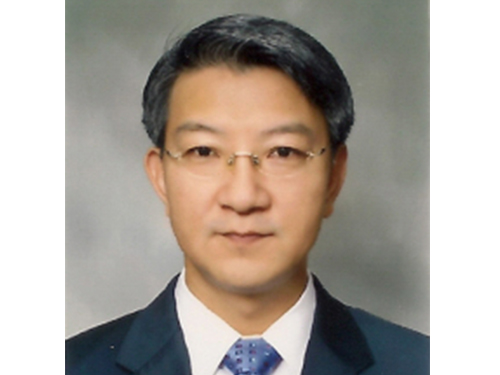 Distinguished Professor Sang Yup Lee Participates in the 2014 Summer Davos Forum
Distinguished Professor Sang Yup Lee from the Department of Chemical and Biomolecular Engineering, KAIST, was invited to lead four sessions at the Annual Meeting 2014, the World Economic Forum, also known as the Summer Davos Forum, which was held in Tianjin, China, from September 10th to 12th.
Two of the four sessions Professor Lee participated in were held on September 10th. At the first session entitled “Biotechnology Ecosystem,” he examined with other panelists the future of bioengineering in depth and discussed major policies and industry trends that will be necessary for the development of future biotechnologies.
Professor Lee later attended the “Strategic Shifts in Healthcare” session as a moderator. Issues related to transforming the health industry such as the next-generation genomics, mobile health and telemedicine, and wearable devices and predictive analytics were addressed.
On September 12, Professor Lee joined the “IdeasLab with KAIST” and gave a presentation on nanotechnology. There was a total of ten IdeasLab sessions held at the Summer Davos Forum, and KAIST was the only Korean university ever invited to host this session. In addition to Professor Lee’s presentation, three more presentations were made by KAIST professors on such topics as “Sustainable Energy and Materials” and “Next-generation Semiconductors.”
Lastly, Professor Lee participated in the “Global Promising Technology” session with the World Economic Forum’s Global Agenda Council members. At this session, he explained the selection of the “World’s Top 10 Most Promising Technologies” and “Bio Sector’s Top 10 Technologies” and led discussions about the “2015 Top 10 Technologies” with the council members.
The Davos Forum has been announcing the “World’s Top 10 Most Promising Technologies” since 2012, and Professor Lee has played a key role in the selection while working as the Chairman of Global Agenda Council. The selection results are presented at the Davos Forum every year and have attracted a lot of attention from around the world.
2014.09.15 View 10662
Distinguished Professor Sang Yup Lee Participates in the 2014 Summer Davos Forum
Distinguished Professor Sang Yup Lee from the Department of Chemical and Biomolecular Engineering, KAIST, was invited to lead four sessions at the Annual Meeting 2014, the World Economic Forum, also known as the Summer Davos Forum, which was held in Tianjin, China, from September 10th to 12th.
Two of the four sessions Professor Lee participated in were held on September 10th. At the first session entitled “Biotechnology Ecosystem,” he examined with other panelists the future of bioengineering in depth and discussed major policies and industry trends that will be necessary for the development of future biotechnologies.
Professor Lee later attended the “Strategic Shifts in Healthcare” session as a moderator. Issues related to transforming the health industry such as the next-generation genomics, mobile health and telemedicine, and wearable devices and predictive analytics were addressed.
On September 12, Professor Lee joined the “IdeasLab with KAIST” and gave a presentation on nanotechnology. There was a total of ten IdeasLab sessions held at the Summer Davos Forum, and KAIST was the only Korean university ever invited to host this session. In addition to Professor Lee’s presentation, three more presentations were made by KAIST professors on such topics as “Sustainable Energy and Materials” and “Next-generation Semiconductors.”
Lastly, Professor Lee participated in the “Global Promising Technology” session with the World Economic Forum’s Global Agenda Council members. At this session, he explained the selection of the “World’s Top 10 Most Promising Technologies” and “Bio Sector’s Top 10 Technologies” and led discussions about the “2015 Top 10 Technologies” with the council members.
The Davos Forum has been announcing the “World’s Top 10 Most Promising Technologies” since 2012, and Professor Lee has played a key role in the selection while working as the Chairman of Global Agenda Council. The selection results are presented at the Davos Forum every year and have attracted a lot of attention from around the world.
2014.09.15 View 10662 -
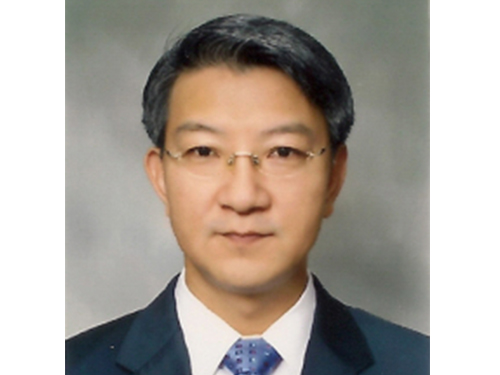 Distinguished Professor Sang Yup Lee Attends World Economic Forum's Workshop
Sang Yup Lee, Distinguished Professor of Chemical and Biomolecular Engineering at KAIST was invited to attend the Technology Pioneer and Global Growth Company CEO Workshop hosted by the World Economic Forum (WEF) on June 19-20, 2014 in San Francisco. During the workshop, Professor Lee joined a discussion on “disruptive technologies” as a panelist.
Currently serving for the evaluation committee that selects technology pioneers for the workshop, during the discussion, Professor Lee identified important issues facing humanity, analyzed the issues through forecasting, and presented converging disruptive technologies that provide solutions to the problems. He also shared the “ten emerging technologies” announced by the Global Agenda Council on Emerging Technologies, WEF and the Korean government’s technology innovation strategies adopted to achieve its economic development policy called creative economy.
2014.06.22 View 7808
Distinguished Professor Sang Yup Lee Attends World Economic Forum's Workshop
Sang Yup Lee, Distinguished Professor of Chemical and Biomolecular Engineering at KAIST was invited to attend the Technology Pioneer and Global Growth Company CEO Workshop hosted by the World Economic Forum (WEF) on June 19-20, 2014 in San Francisco. During the workshop, Professor Lee joined a discussion on “disruptive technologies” as a panelist.
Currently serving for the evaluation committee that selects technology pioneers for the workshop, during the discussion, Professor Lee identified important issues facing humanity, analyzed the issues through forecasting, and presented converging disruptive technologies that provide solutions to the problems. He also shared the “ten emerging technologies” announced by the Global Agenda Council on Emerging Technologies, WEF and the Korean government’s technology innovation strategies adopted to achieve its economic development policy called creative economy.
2014.06.22 View 7808 -
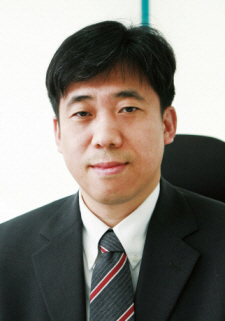 Professor Ki Jun Jeong Selected As the Winner of the 'Young Asian Biotechnologist Prize'
Professor Ki Jun Jeong from the Department of Chemical and Biomolecular Engineering, KAIST, has been selected as the winner of this year’s Young Asian Biotechnologist Prize.
Professor Jeong was invited to the 66th Japan Biotechnology and Bioengineering Society Conference scheduled in September 9th-11th, 2014, in Sapporo, Japan, where his award ceremony will be held.
The award is presented to Professor Jeong in recognition of his outstanding research on microbial-based production of antibodies and efficiency improvement.
The Young Asian Biotechnologist Prize is awarded annually by the Japan Biotechnology and Bioengineering Society to the researchers in Asia under the age of 45, who have achieved excellent research results in the field of bioengineering.
2014.06.14 View 8564
Professor Ki Jun Jeong Selected As the Winner of the 'Young Asian Biotechnologist Prize'
Professor Ki Jun Jeong from the Department of Chemical and Biomolecular Engineering, KAIST, has been selected as the winner of this year’s Young Asian Biotechnologist Prize.
Professor Jeong was invited to the 66th Japan Biotechnology and Bioengineering Society Conference scheduled in September 9th-11th, 2014, in Sapporo, Japan, where his award ceremony will be held.
The award is presented to Professor Jeong in recognition of his outstanding research on microbial-based production of antibodies and efficiency improvement.
The Young Asian Biotechnologist Prize is awarded annually by the Japan Biotechnology and Bioengineering Society to the researchers in Asia under the age of 45, who have achieved excellent research results in the field of bioengineering.
2014.06.14 View 8564 -
 Professor Sang-Yup Lee Named the Winner of the Ho-Am Prize in 2014
The Ho-Am Prize, awarded by Samsung Group’s Ho-Am Foundation, was announced on April 2, 2014 in Seoul. Professor Sang-Yup Lee of Chemical and Biomolecular Engineering at KAIST was among the five recipients.
The prize is presented to Koreans who have made great contributions to the development of Korea in the field of science, engineering, medicine, arts, and philanthropy.
Professor Lee received the award in recognition of his pioneering research on systems metabolic engineering.
For the story written by Korea Joongang Daily, please go to the link below:
Ho-Am Foundation Names Annual Prize Winners
Korea Joongang Daily
April 3, 2014
http://koreajoongangdaily.joins.com/news/article/Article.aspx?aid=2987332
2014.04.03 View 9062
Professor Sang-Yup Lee Named the Winner of the Ho-Am Prize in 2014
The Ho-Am Prize, awarded by Samsung Group’s Ho-Am Foundation, was announced on April 2, 2014 in Seoul. Professor Sang-Yup Lee of Chemical and Biomolecular Engineering at KAIST was among the five recipients.
The prize is presented to Koreans who have made great contributions to the development of Korea in the field of science, engineering, medicine, arts, and philanthropy.
Professor Lee received the award in recognition of his pioneering research on systems metabolic engineering.
For the story written by Korea Joongang Daily, please go to the link below:
Ho-Am Foundation Names Annual Prize Winners
Korea Joongang Daily
April 3, 2014
http://koreajoongangdaily.joins.com/news/article/Article.aspx?aid=2987332
2014.04.03 View 9062 -
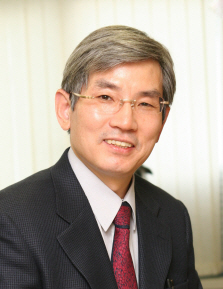 Professor Huen Lee to Receive Lifetime Achievement Award from the International Conference on Gas Hydrates
Professor Huen Lee of the Chemical and
Biomolecular Engineering Department at KAIST will receive a lifetime
achievement award at the 8th International Conference on Gas
Hydrates (ICGH) to be held from July 28, 2014 to August 2, 2014 in Beijing,
China.
Among his other scholarly and research accomplishments, Professor Lee achieved the development of natural gas by injecting
carbon dioxide and nitrogen into the layers of gas hydrates. With this
technology, ConocoPhilips, an American multinational energy corporation,
successfully extracted natural gas from the gas hydrates in the North Slope of
Alaska in the US in April 2012.
Meeting every three years in a different
country around the world, ICGH is a leading gathering of scientists and
engineers in gas hydrates. The 8th conference will be held under the
theme of “Opportunity and Challenge-Development and Utilization of Gas
Hydrates.”
2014.03.25 View 6975
Professor Huen Lee to Receive Lifetime Achievement Award from the International Conference on Gas Hydrates
Professor Huen Lee of the Chemical and
Biomolecular Engineering Department at KAIST will receive a lifetime
achievement award at the 8th International Conference on Gas
Hydrates (ICGH) to be held from July 28, 2014 to August 2, 2014 in Beijing,
China.
Among his other scholarly and research accomplishments, Professor Lee achieved the development of natural gas by injecting
carbon dioxide and nitrogen into the layers of gas hydrates. With this
technology, ConocoPhilips, an American multinational energy corporation,
successfully extracted natural gas from the gas hydrates in the North Slope of
Alaska in the US in April 2012.
Meeting every three years in a different
country around the world, ICGH is a leading gathering of scientists and
engineers in gas hydrates. The 8th conference will be held under the
theme of “Opportunity and Challenge-Development and Utilization of Gas
Hydrates.”
2014.03.25 View 6975 -
 Science Daily: Nanostructured Capsules Could Bring About Paints and Electronic Displays That Never Fade
A collaborative research by Professor Shin-Hyun Kim of Chemical and Bimolecular Engineering, KAIST, and his student, Tae-Min Choi, on nano-structural colors with Harvard University was published by Science Daily on March 14, 2014.
For the article, please go to:
Science Daily,
March 14, 2014
Featured Research
"Brighter inks, without pigment: Nanostructured capsules could bring about paints and electronic displays that never fade"
http://www.sciencedaily.com/releases/2014/03/140314164214.htm
2014.03.17 View 8253
Science Daily: Nanostructured Capsules Could Bring About Paints and Electronic Displays That Never Fade
A collaborative research by Professor Shin-Hyun Kim of Chemical and Bimolecular Engineering, KAIST, and his student, Tae-Min Choi, on nano-structural colors with Harvard University was published by Science Daily on March 14, 2014.
For the article, please go to:
Science Daily,
March 14, 2014
Featured Research
"Brighter inks, without pigment: Nanostructured capsules could bring about paints and electronic displays that never fade"
http://www.sciencedaily.com/releases/2014/03/140314164214.htm
2014.03.17 View 8253 -
 The Korea Herald: Synthetic Biology Holds Key to Future
The Korea Herald
, a leading English newspaper in Korea, published an article on the production of gasoline by a metabolically engineered microorganism. For the article, please go to the link below:
The Korea Herald
March 14, 2014
"Synthetic biology holds key to future"
KAIST professor makes breakthrough in biorefining using E. coli’s metabolic process
http://www.koreaherald.com/view.php?ud=20140314001343
2014.03.17 View 6938
The Korea Herald: Synthetic Biology Holds Key to Future
The Korea Herald
, a leading English newspaper in Korea, published an article on the production of gasoline by a metabolically engineered microorganism. For the article, please go to the link below:
The Korea Herald
March 14, 2014
"Synthetic biology holds key to future"
KAIST professor makes breakthrough in biorefining using E. coli’s metabolic process
http://www.koreaherald.com/view.php?ud=20140314001343
2014.03.17 View 6938 -
 Phys.org: Researchers develop non-iridescent, structural, full-spectrum pigments for reflective displays
The latest research work by Professor Shin-Hyun Kim of Chemical and Biomolecular Engineering at KAIST on the “microcapsulation og photonic crystals using osmotic pressure” has been published by Phys.org, a leading web-based science, research and technology news. For the articles, please click the link below:February 20, 2014Researchers develop non-iridescent, structural, full-spectrum pigments for reflective displayshttp://phys.org/news/2014-02-non-iridescent-full-spectrum-pigments.html
2014.02.21 View 7479
Phys.org: Researchers develop non-iridescent, structural, full-spectrum pigments for reflective displays
The latest research work by Professor Shin-Hyun Kim of Chemical and Biomolecular Engineering at KAIST on the “microcapsulation og photonic crystals using osmotic pressure” has been published by Phys.org, a leading web-based science, research and technology news. For the articles, please click the link below:February 20, 2014Researchers develop non-iridescent, structural, full-spectrum pigments for reflective displayshttp://phys.org/news/2014-02-non-iridescent-full-spectrum-pigments.html
2014.02.21 View 7479 -
 Professor Jae-Hyung Lee appointed as AIChE fellow
Professor Jae-Hyung Lee from the Department of Chemical and Bimolecular Engineering at KAIST was appointed as a fellow in the American Institute of Chemical Engineers (AIChE).
Established in 1908, AIChE is the largest association of chemical engineers worldwide, which now boasts more than 40,000 members from 90 countries.
Following Distinguished Professor Sang Yup Lee from the same department at KAIST, Professor Jae-Hyung Lee is the second Korean appointed as a fellow by the organization.
He has been acknowledged for his innovative research on the improvement of model predictive control of industrial processes.
Professor Lee is the director of the Saudi Armaco-KAIST CO2 Management Center at KAIST, a fellow of the Institute of Electrical and Electronics Engineers (IEEE) and the International Federation of Automatic Control (IFAC), and a member of the Korean Academy of Science and Technology.
He received the Young Investigator Award from the National Science Foundation (NSF) in 1994 and the Computing in Chemical Engineering Award from AIChE in 2013.
2013.11.05 View 8773
Professor Jae-Hyung Lee appointed as AIChE fellow
Professor Jae-Hyung Lee from the Department of Chemical and Bimolecular Engineering at KAIST was appointed as a fellow in the American Institute of Chemical Engineers (AIChE).
Established in 1908, AIChE is the largest association of chemical engineers worldwide, which now boasts more than 40,000 members from 90 countries.
Following Distinguished Professor Sang Yup Lee from the same department at KAIST, Professor Jae-Hyung Lee is the second Korean appointed as a fellow by the organization.
He has been acknowledged for his innovative research on the improvement of model predictive control of industrial processes.
Professor Lee is the director of the Saudi Armaco-KAIST CO2 Management Center at KAIST, a fellow of the Institute of Electrical and Electronics Engineers (IEEE) and the International Federation of Automatic Control (IFAC), and a member of the Korean Academy of Science and Technology.
He received the Young Investigator Award from the National Science Foundation (NSF) in 1994 and the Computing in Chemical Engineering Award from AIChE in 2013.
2013.11.05 View 8773 -
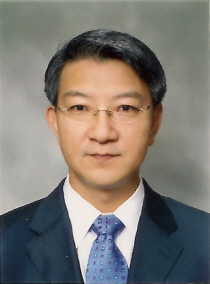 Distinguished Professor Sang Yup Lee appointed as an advisor for Shanghai Jiao Tong University in China
In recognition of his outstanding accomplishments in the area of bioengineering, specializing in metabolic engineering, Sang Yup Lee, a distinguished professor of Chemical & Biomolecular Engineering at KAIST, was assigned as an advisory professor for the bioengineering department at Shanghai Jiao Tong University in China for five years from August 2013 to July 2018.
Together with Peking University and Tsinghua University, Shanghai Jiao Tong University is one of the top three universities in China.
The advisory professors carry out collaborated research programs in special areas and provide advice on education and research issues.
Professor Lee, a specialist in metabolic engineering, has initiated systems metabolic engineering which integrates metabolic engineering, systems biology, and synthetic biology and has applied it to various chemical production systems to develop bio fuel and many eco-friendly chemical production processes. Recently, he received the Marvin J. Johnson Award from the American Chemistry Society, the Charles Thom Award from the American Society for Industrial Microbiology, as well as the Amgen Biochemical Engineering Award. As a global leader in the area of bioengineering, Professor Lee is a member of the Korean Academy of Science & Technology, the National Academy of Engineering of Korea, the US National Academy of Engineering, and is the chairman of the Global Agenda Council on Biotechnology at the World Economic Forum.
2013.10.31 View 8151
Distinguished Professor Sang Yup Lee appointed as an advisor for Shanghai Jiao Tong University in China
In recognition of his outstanding accomplishments in the area of bioengineering, specializing in metabolic engineering, Sang Yup Lee, a distinguished professor of Chemical & Biomolecular Engineering at KAIST, was assigned as an advisory professor for the bioengineering department at Shanghai Jiao Tong University in China for five years from August 2013 to July 2018.
Together with Peking University and Tsinghua University, Shanghai Jiao Tong University is one of the top three universities in China.
The advisory professors carry out collaborated research programs in special areas and provide advice on education and research issues.
Professor Lee, a specialist in metabolic engineering, has initiated systems metabolic engineering which integrates metabolic engineering, systems biology, and synthetic biology and has applied it to various chemical production systems to develop bio fuel and many eco-friendly chemical production processes. Recently, he received the Marvin J. Johnson Award from the American Chemistry Society, the Charles Thom Award from the American Society for Industrial Microbiology, as well as the Amgen Biochemical Engineering Award. As a global leader in the area of bioengineering, Professor Lee is a member of the Korean Academy of Science & Technology, the National Academy of Engineering of Korea, the US National Academy of Engineering, and is the chairman of the Global Agenda Council on Biotechnology at the World Economic Forum.
2013.10.31 View 8151